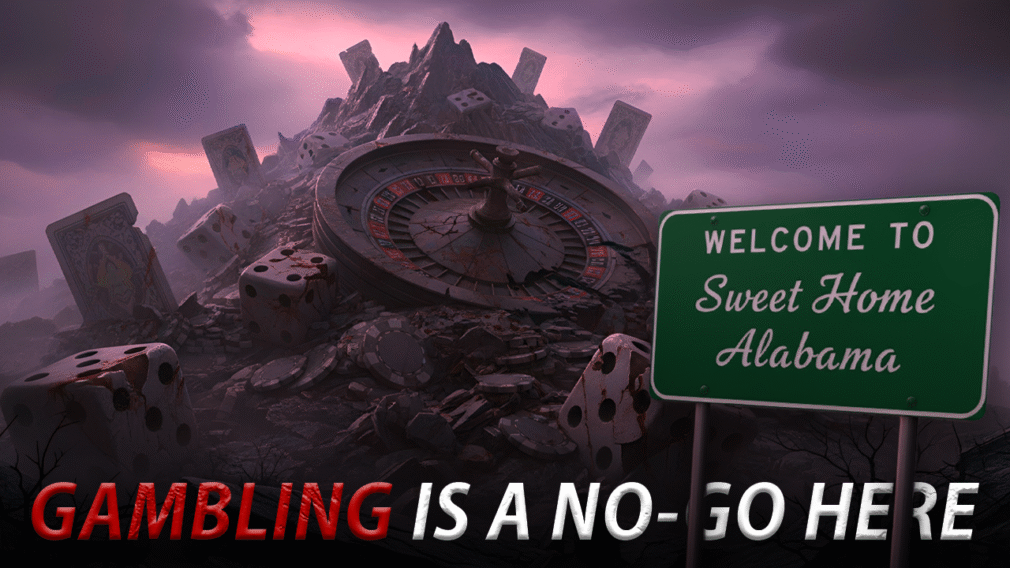Why Gambling Will Never Be Legal In Alabama? [VIDEO]
Alabama remains a rare exception in the modern United States by maintaining a near-total ban on most forms of gambling. The quick reason for this strict environment is rooted in the state’s foundational law: the Alabama Constitution of 1901. This document, specifically Article IV, Section 65, directly forbids “games of chance”.

This constitutional barrier means state lawmakers cannot simply pass a regular bill to legalize casinos or sports betting. To introduce any legal gambling, a Constitutional Amendment must first pass both the House and Senate. This requires a three-fifths supermajority in both chambers just to get the measure onto a public ballot.
The Constitutional Bedrock and Legal Exceptions
The ban’s power was cemented by the 2004 Alabama Supreme Court case, Ex Parte Ted’s Game Enterprises. The court ruled that if chance is the dominant factor in a game, it is prohibited. This definition outlawed nearly all traditional casino games and state lotteries. This legal framework allows the state to treat unauthorized gambling as a criminal offense.
Despite this strict ban, Alabama permits certain exceptions, leading to a confusing landscape. For example, the Constitution has been amended 18 times since 1980 to allow limited charitable Bingo in specific counties. Furthermore, the Alabama Supreme Court ruled in 1971 that Pari-Mutuel betting on horse and dog racing was constitutional. The court argued that the outcome of a race involves a “significant degree of skill” by the animal, meaning it is not a “pure game of chance”.
The most powerful exception to the state ban is the Poarch Band of Creek Indians (PCI). As the only federally recognized tribe in Alabama , the PCI operates three high-end casinos—Wind Creek Atmore, Wind Creek Montgomery, and Wind Creek Wetumpka. The Indian Gaming Regulatory Act of 1988 allows the sovereign tribe to run these casinos because Alabama already permits some forms of gambling, like pari-mutuel and bingo. Crucially, the state has no jurisdiction or tax revenue from these major gaming operations.
Opposing Forces and Legislative Breakdown
The high legal threshold is reinforced by a strong, organized moral opposition. Groups like the Alabama Policy Institute (API) and the Southeast Law Institute (SLI) actively fight all attempts at legalization. They frame lotteries and casinos as regressive taxes that harm the poor disproportionately. They also warn that expanded gambling increases social issues like crime, addiction, and corruption. This opposition has political momentum, recently fueling efforts to increase criminal penalties for gambling crimes.
The political structure, requiring the three-fifths supermajority, has consistently led to legislative failure. In 2024, a major bill aiming to create a state lottery, legalize online sports betting, and allow up to seven casinos was introduced. Although the package passed the House, the Senate dramatically stripped it down to a lottery-only version. The compromise bill ultimately failed in the Senate by a single vote.
The powerful and well-funded opposition from the Poarch Band of Creek Indians also adds a block, as they view bills that introduce new competing casinos as an attack on their exclusivity. Following the 2024 defeat, the political climate has shifted back toward enforcement of existing criminal laws rather than reform. Despite public support for a lottery, the combination of constitutional requirements, moral opposition, and political gridlock ensures that legal gambling in Alabama remains an extremely difficult bet to win
Recommended
